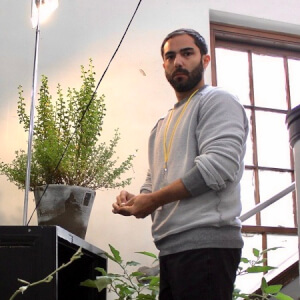It is known that the human gut contains a large community of microorganisms (also known as the gastrointestinal microbiota) that helps in the digestion process, in the synthesis of vitamins and in the protection against harmful external agents. The diversity and density of this microbiota are strongly correlated with factors that have been well studied, such as the host’s diet and drug use. However, the balance of this rich community is also affected by numerous other external factors that are still poorly understood. Commonly sold douche products do not take these ecosystems of wellness into consideration. Douching is a process of washing certain regions of the body, such as the vagina and anus, by introducing a jet of water or chemically processed liquid into these cavities. In the United States, douching has had a long relationship with feminism. Historically, the douche has been used by women as a form of contraception for centuries, but also has treated and perpetuated the vagina (and woman) as undesirable, odorous, and dirty. Social and kinship pressures (often in the form of well-funded ad campaigns) have interpolated these negative associations into personal identity narratives, creating a desire for women to use toxic, bleach based products such as lysol to the detriment of their physical wellness. Liberating women has been a matter of freeing them from these subjectivations of dirty bodies. Although controversial, vaginal douching is still widely used (often in higher rates by women of color), and anal douching especially by the LGBTQ community. As you can imagine, the quality of the water used in douching is an important point of discussion, since it directly affects the health of the microbiota, and is put in contact with one of the most permeable organs of the body. Although water quality in the United States is considered “safe” millions of people do not have adequate access to this resource (many of which live in marginalized communities). These reasons range from inadequate water treatment by government agencies to the lack of maintenance of the plumbing in the homes. Beyond the nefarious and harmful agenda of the douche itself on women, queers, and persons of color; what does it mean to strip away not only protective mucal linings, but bacterial lineages that have accumulated in our families (as seen visualized by Kathy High’s artworks, The Landscape of Lost Microbes, and Family Bio-Crests). The loss of bacterial diversity may be the loss of personal, if not intraspecies diversity and identity, as executed by Western (in this case, at least misogynistic) ideals of cleanliness. At a time when the human microbiome is being annihilated by our global use of hand sanitizer, our paper approaches this issue from the back end, as well as conceptualizes cleaner, safer, microbiome oriented solutions.
Back







